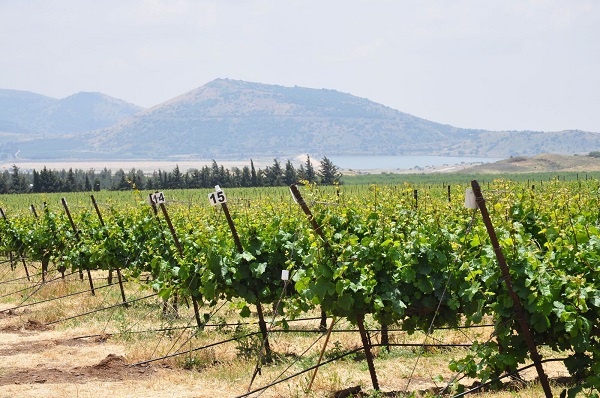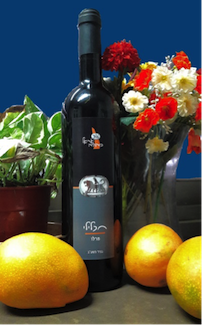‘Wine-Washing’ and the Question of Jewish Indigeneity
by Michael Lumish
The University of California is not fond of Israel — or pro-Israel Jews.
On February 5, professor Ariel Handel lectured at the University of California, Berkeley’s Center for Middle Eastern Studies. Handel spoke about his recent paper concerned with the indigenous Israeli grape.

One would think that since the San Francisco Bay Area is home to some of the finest vines in the world, that an Israeli expert on indigenous Middle Eastern wine and its political significance would have been greeted with considerable interest.
He was not.
In truth, he was snubbed.
There were barely more than ten of us in the room.
Handel was visiting California from Tel Aviv University to discuss, among other things, the meaning of wine in the debate between Arabs and Jews regarding questions of indigeneity within the Levant.
Central to Handel’s thesis is the vinicultural concept of “terroir.”
It suggests that the flavor of a wine is due to the character of its natural environment, and how it is nurtured by the indigenous population; thus, he argues, the grape and wine reflect a country’s land and people. It is because Chardonnay, for example, is native to the Burgundy region of eastern France that its quality will never be quite the same as when grown in, say, the Jezreel Valley in the Lower Galilee.
Handel insists that “the grape is mute” on Jewish versus Arab claims to the land of Israel.
Nonetheless, some scholars, such as Dr. Shivi Drori from Ariel University, use the vine as a means of establishing Jewish historicity.
In a recent New York Times piece, Jodi Rudoren quotes Drori as claiming: “All our scriptures are full with wine and with grapes. … We have a very ancient identity, and for me, reconstructing this identity is very important. For me, it’s a matter of national pride.”

Rudoren also quotes Amer Kodash, the export director for Cemisan Cellars, who claims: “these types of grapes are totally Palestinian grapes grown on Palestinian vineyards.”
What baffles me is how professor Mandel, as a social scientist, cannot make a claim on the question of Jewish indigeneity — grapes or no grapes.
History as a field of knowledge is part of the humanities and social sciences, and is not silent on this question. The field of history tells us very clearly that the Jewish people are the only remaining indigenous people within the small strip of land between the Jordan River and the Mediterranean Sea.
The Jebusites are gone. The Hittites and Amorites are gone. Even the neighboring Romans and ancient Egyptians are gone.
The Arabs who now call themselves “Palestinian” come from elsewhere, and have nothing whatsoever to do with the ancient Canaanites or Aegean Philistines.
Handel is correct that the DNA of an ancient seed of the vine cannot tell us who grew the plant. Only history as a field of knowledge can do that.
Handel refers to the “banalization of the Jewish presence in the West Bank.”
What a strange phrase for an Israeli professor to employ.
I do not want to make the worst of it, but it saddens me.
Hannah Arendt famously used the phrase “banality of evil” to describe Adolph Eichmann in Eichmann in Jerusalem: A Report on the Banality of Evil. Arendt described Eichmann as a functionary — a cog in the wheel.
Handel’s usage is the same, except that instead of referring to the murderers of millions of Jews, he uses it as a reference to Jews who wish to live on the traditional land of the Jewish people.
The implicit comparison is not only unjust and ahistoric, but grotesque.
My guess is that he does not really mean it, but then I wish he had not used it.

Michael Lumish is a PhD in American history from the Pennsylvania State University and has taught at PSU, San Francisco State University, and the City College of San Francisco. He regularly publishes on the Arab-Israel conflict from a cultural-historical perspective at pro-Israel venues such as the Elder of Ziyon, The Jewish Press, Jews Down Under, Campus Watch, and the Algemeiner, among other places.








